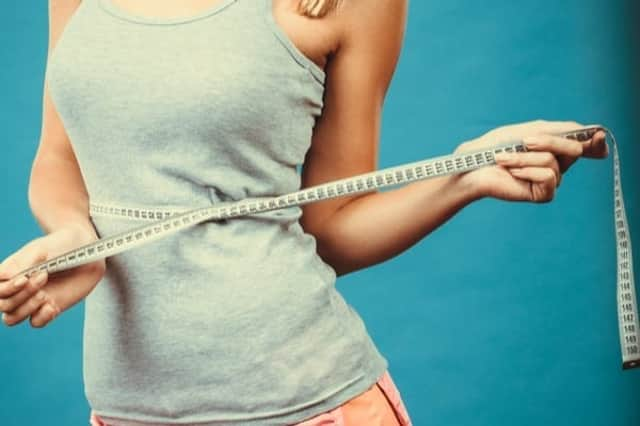Diet myths: 12 of the most common misconceptions debunked


With so many food no-nos constantly in the news, it's hard to determine what's actually good and what's not.
Carbohydrates, fats and sugars have all been labelled as your body's enemy, and a healthy diet fuelled with nutritious greens is the way forward.
Advertisement
Hide AdAdvertisement
Hide AdBut is everything we've been told about certain foods and dieting really true?
Here are 12 of the most common diet myths, debunked.
1. Carbs are the enemy
Carbohydrates are widely regarded as bad for your diet, but when not consumed in excess they contribute to a healthy and balanced diet.
Combining carbs with protein rich foods and veggies will help to keep you feeling full and fuelled, helping you to get the balance right to avoid cravings.
2. Eating gluten-free will shed the weight
Unless you have an intolerance to gluten like coeliac disease, there is no reason to avoid the foods that contain it.
Advertisement
Hide AdAdvertisement
Hide AdThere is no evidence to support the claim that gluten-free is any healthier or beneficial to fuelling weight-loss, despite it being one of the most popular current diet trends.
3. Organic foods are healthier
A post shared by Duidaile Farm (@duidailefarm) on Jun 6, 2018 at 8:21am PDT
Foods labelled as organic may sound healthier and more nutritious than the regular alternatives, but organic meat and dairy is actually considered to be higher in omega-3 fatty acids thanks to the diet of the organically reared animals.
4. All fats should be cut out
A fat-free diet resulting in a fat-free body might sound logical, but not all fats are bad for you.
Advertisement
Hide AdAdvertisement
Hide AdReplacing saturated fats with unsaturated fats can contribute to lowering cholesterol and limiting your intake of fatty foods is better for your health, but avoiding fats altogether will rob your body of Omega-3 and much needed vitamins.
5. Healthy eating is more expensive
Compared to the cost of a lot of 'junk foods', the cost of eating healthily is a lot cheaper than it's often claimed, with many diet and low calorie options actually priced the same as their unhealthier counterparts.
6. Diet drinks will keep you slim
A post shared by @lostinablog on May 8, 2018 at 10:29am PDT
A diet alternative to your favourite fizzy drink may sound like the dream, but they're actually full of artificial sweeteners like aspartame, which can cause food cravings and have been linked to cancers, thyroid issues and weight gain.
7. Eating late at night is bad for you
Banning food after 6pm will not have any effect on weight gain.
Advertisement
Hide AdAdvertisement
Hide AdYour metabolism will continue to burn energy throughout the night, so providing you don't over-eat, late night eating won't have a detrimental effect on your waistline.
8. Grazing can help you lose weight
Eating regularly throughout the day will ensure your metabolism works efficiently, but grazing on small snacks can lead to consuming more calories than you normally would eating a fewer, larger meals.
9. Egg yolks are the dieter's enemy
A post shared by Litsa.Roussou.Mendrinou😊 (@litsaki133) on May 20, 2018 at 11:37pm PDT
Egg yolks have been dubbed as the dieters' enemy because they are high in cholesterol and as such should be avoided in favour of egg whites instead.
Advertisement
Hide AdAdvertisement
Hide AdBut the biggest culprits for high cholesterol levels are trans fats and added sugars, and the high protein levels provided by eggs makes them beneficial to have in your diet.
10. Artificial sweeteners are good for weight loss
Substitutes to sugar may sound like a sweet alternative, but artificial sweeteners have actually been linked to diabetes, high blood pressure and weight gain, as they can cause your body to crave sugar even more.
11. Detoxes and cleanses are essential
A post shared by Sophia Gigi (@sophiagigi) on Mar 8, 2018 at 6:19am PST
The body rids itself of toxins regularly on its own, so while cutting out certain foods for a 'cleanse' may sound like it's beneficial, it is completely unnecessary.
Advertisement
Hide AdAdvertisement
Hide AdBy limiting your daily intake of nutrients, it can lead to lack of energy, headaches and dizziness due to low blood sugar levels.
12. If you exercise, you can eat what you want
Rewarding yourself with a doughnut after a challenging workout may be tempting, but if you're consuming more calories than you're burning off, eating whatever takes your fancy will have an impact on your weight. It's all about finding the right balance.